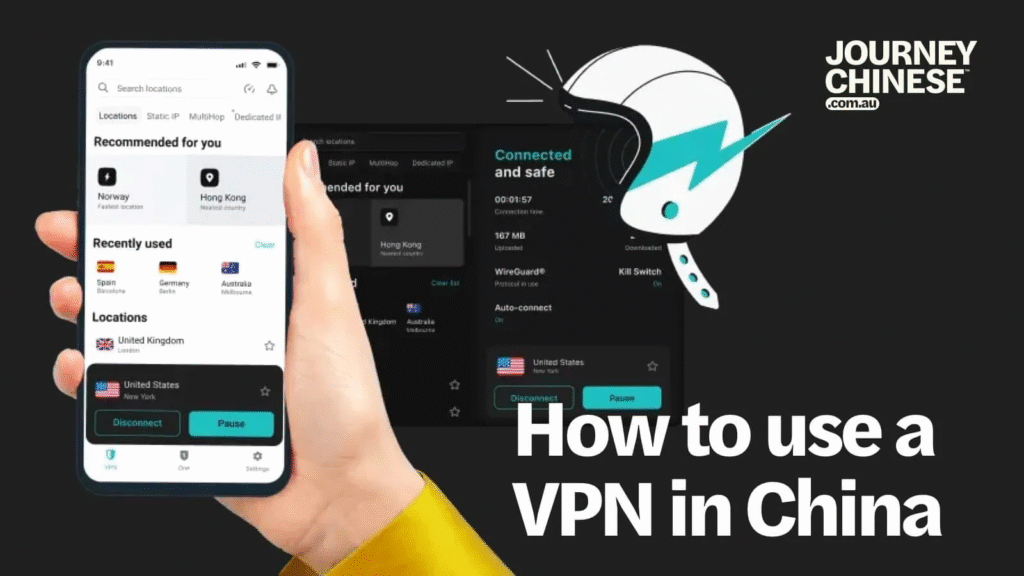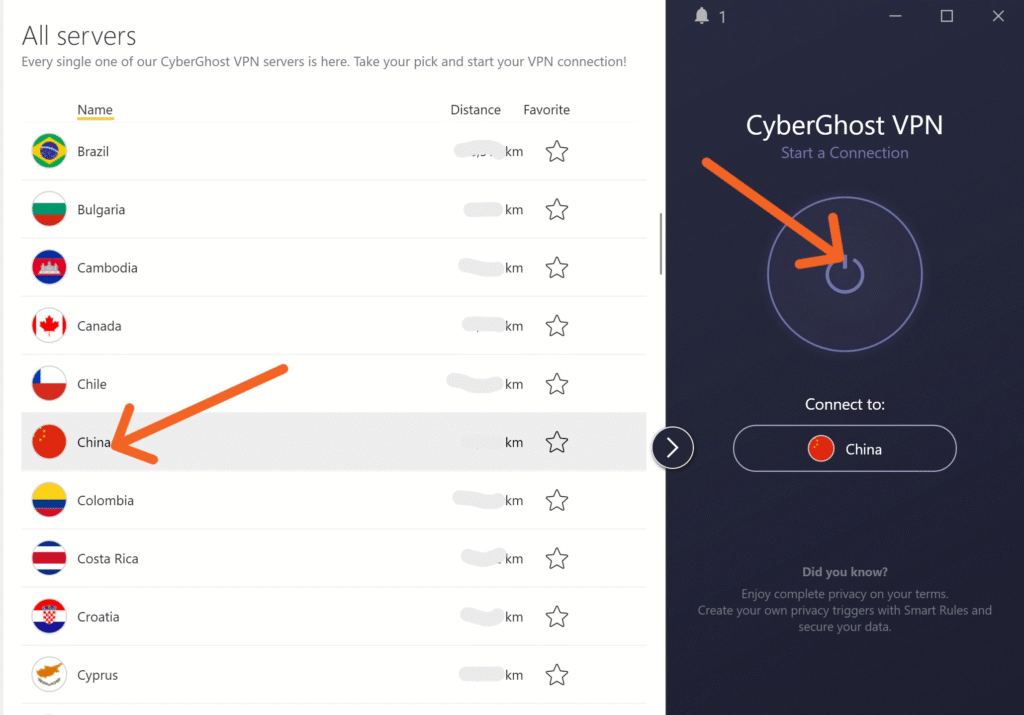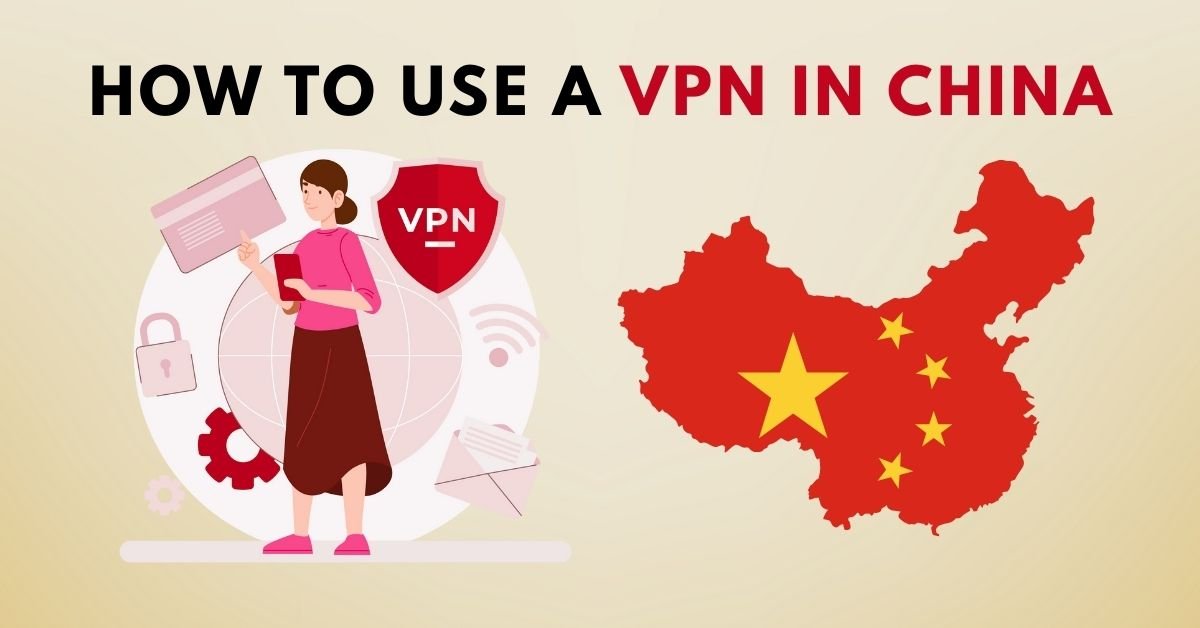China’s Great Firewall makes accessing Google, YouTube, Facebook, and many Western services difficult—or impossible. Using a VPN is the safest and most reliable method to regain internet freedom and privacy while in China. In this guide from VPN AdWiser, you’ll discover:

- Why you need a VPN in China
- How VPNs bypass censorship
- The best VPNs that still work in China in 2025
- Step‑by‑step setup and download tips
- Troubleshooting and legal considerations
- A helpful FAQ to wrap up
Why You Need a VPN in China
- Bypass the Great Firewall: Many Western websites and apps are blocked. A VPN hides your traffic and lets you access them from abroad.
- Protect your privacy: VPN traffic is encrypted, keeping Chinese ISPs or authorities from snooping
- Avoid government surveillance: VPN encryption masks what you’re accessing, helping you stay private.
Is Using a VPN in China Legal?
- Technically, unauthorized VPNs are illegal for general consumers. Only approved VPNs (typically used by businesses) are permitted
- In reality, enforcement mostly targets providers—not tourists. No widespread arrests of individuals for VPN use have been documented
- Use at your own risk. Avoid storing sensitive data that may attract attention.
How Does China Block VPNs and How Do VPNs Circumvent It?
China uses deep packet inspection (DPI) to detect VPN traffic patterns. Most VPN protocols like OpenVPN are easily blocked. VPNs that work in China rely on several features:
- Obfuscation or “stealth” mode hides VPN packets to look like normal HTTPS traffic
- Rapid IP rotation prevents IP addresses from being blacklisted
- Protocols like WireGuard (with camouflage), NordLynx, or proprietary Lightway slip past detection

Best VPNs That Still Work in China (as of August 2025)
According to recent testing, these VPNs remain the top performers in China:
- NordVPN – Fast speeds, strong obfuscation via NordWhisper, reliable access
- Surfshark – Budget-friendly, unlimited devices, NoBorders mode for stealth access
- ExpressVPN – Highly intuitive, Lightway protocol, frequent IP rotation, works well when pre‑installed before arrival
- VPN.ac – Advanced encryption and China‑optimized servers (especially good for torrenting)
- Other contenders: Astrill VPN, Mullvad, VyprVPN and LetsVPN also maintain working status with mixed reviews
Step‑by‑Step: Downloading and Installing a VPN for China
Before You Leave:
- Subscribe to a trusted VPN (NordVPN, Surfshark, ExpressVPN, or VPN.ac).
- Download and install the client on all devices (Windows, macOS, iOS, Android).
- Set or enable obfuscation or stealth mode in settings.
- Test the connection and bookmark multiple international servers
If You’re Already in China Without a VPN:
- Use mirrored links or proxy access to download installers or app store mirrors
- Try using a foreign SIM card for app store access, then switch back after install
- Ask a friend abroad to send APK or .dmg installers via email or file-sharing link.
In‑China Setup: Connecting and Optimizing
- Launch the VPN app
- Enable stealth/obfuscated mode or auto‑detect restrictive networks
- Connect to servers in nearby countries like Hong Kong, Taiwan, Japan, Singapore or South Korea (often the fastest and most reliable connection
- Enable a built‑in kill switch to protect your data if the VPN disconnects
- Use different ports or protocols—port 443 or WireGuard-based NordLynx/Lightway works best
- Consider multi‑hop or double‑VPN options if available
Common Troubleshooting Tips
- VPN fails to connect: Try switching servers or protocols. If using Surfshark, enable NoBorders manually.
- Low speed or timeouts: Connect to a different server (preferably in nearby country).
- Apps blocked: Reinstall using mirror links or email backups.
- No data after connection drop: Use the kill switch feature to avoid IP leaks.
- Still can’t access blocked sites: Contact VPN support—they often provide private domains or refresh server IPs.
Summary Table
| Feature | NordVPN | Surfshark | ExpressVPN | VPN.ac |
|---|---|---|---|---|
| Works reliably in China | ✅ | ✅ | ✅ (with pre-install) | ✅ |
| Obfuscation / stealth | NordWhisper | NoBorders | Lightway / auto | “I’m in China” toggle |
| Speed | Excellent | Very good | Good | Good |
| Devices supported | Up to 6 | Unlimited | Up to 8 | Up to 5 |
| Free trial or refund | 30-day refund | 30-day refund | 30-day refund | Limited refund window |
| Price (starting) | ≈ USD 3.39/mo | ≈ USD 1.99/mo | ≈ USD 4.99/mo | ≈ USD 3.75/mo |
Legal & Privacy Tips
- Never store sensitive documents or login credentials on a device while using VPN in China.
- Keep VPN apps and operating systems updated before traveling.
- Avoid free or unknown VPN services—they often log or leak your data
- If prompted by authorities, disconnect gracefully—don’t panic or expose passwords.

FAQ
Q1: Can I use a free VPN in China?
A1: Free VPNs rarely work because they lack obfuscation, quickly get blocked, and often compromise privacy. Even “working” free VPNs can be dangerous.
Q2: Do I need to set up the VPN before arriving in China?
A2: Yes! VPN websites are blocked inside China, so it’s critical to install apps and set everything up before traveling.
Q3: Which protocol works best in China?
A3: Lightway (ExpressVPN), NordLynx (NordVPN), or WireGuard with obfuscation are the most reliable protocols bypassing censorship.
Q4: What happens if the VPN stops working?
A4: Try reconnecting via a different server, switch protocols, or enable extra stealth options. If all else fails, contact VPN support—they often refresh IPs for China users.
Q5: What if my VPN app disappears?
A5: It may be deleted remotely or wiped by authorities. Always keep backups or mirrored installers saved offline.
Conclusion
Using a VPN in China presents unique challenges, but with the right preparation, it’s achievable and safe. The top providers—NordVPN, Surfshark, ExpressVPN, and VPN.ac—use proven obfuscation, solid protocols, and server rotation to stay ahead of the Great Firewall’s restrictions.
To maximize success:
- Install and configure your VPN before entering China
- Enable stealth or obfuscation in the app settings
- Connect to servers near China for better performance
- Keep backup installers and troubleshooting steps handy
- Always prioritize security and reliable providers
With these tools and strategies, you can stay connected, access global content, and preserve your privacy while in China.








